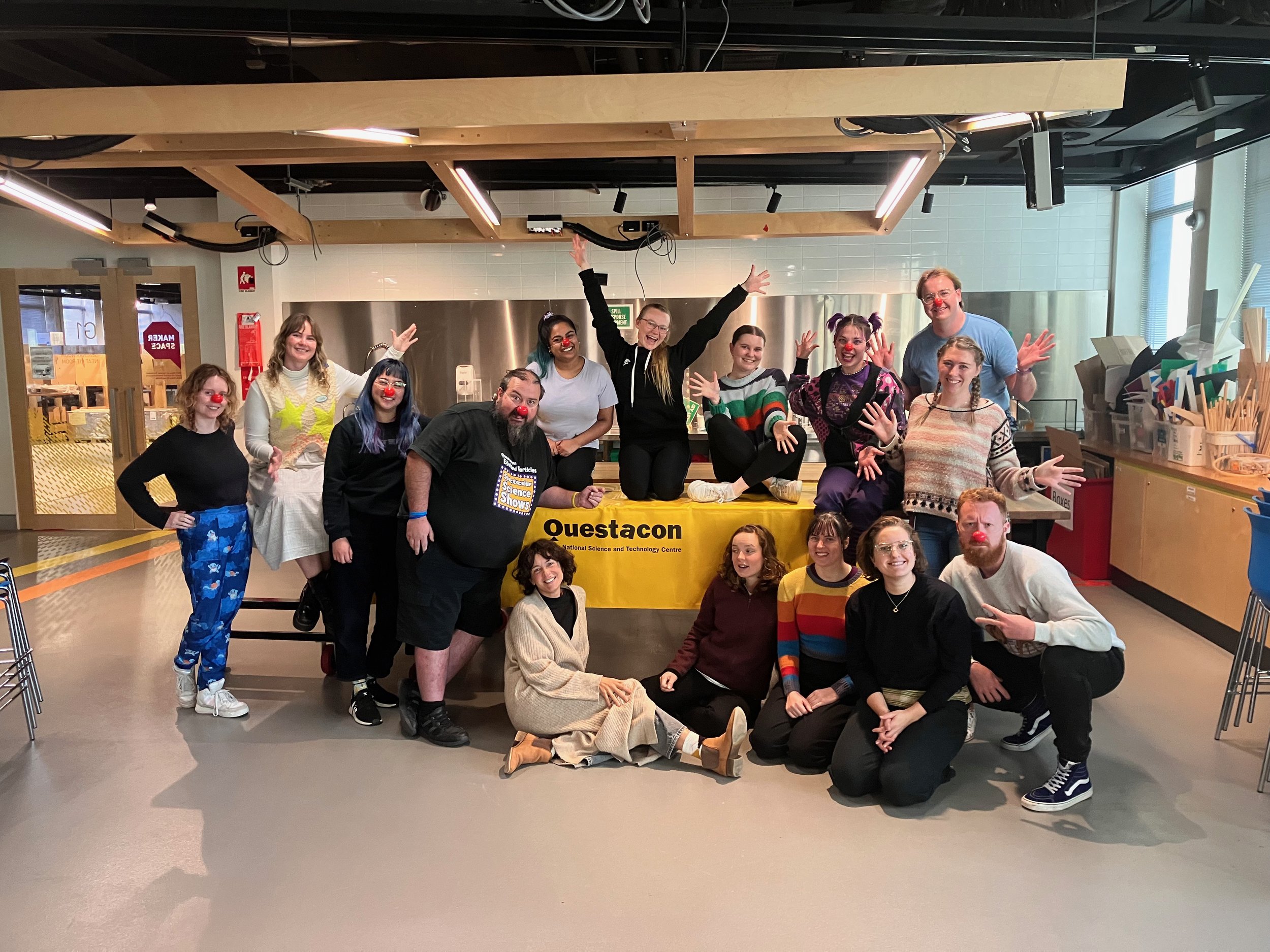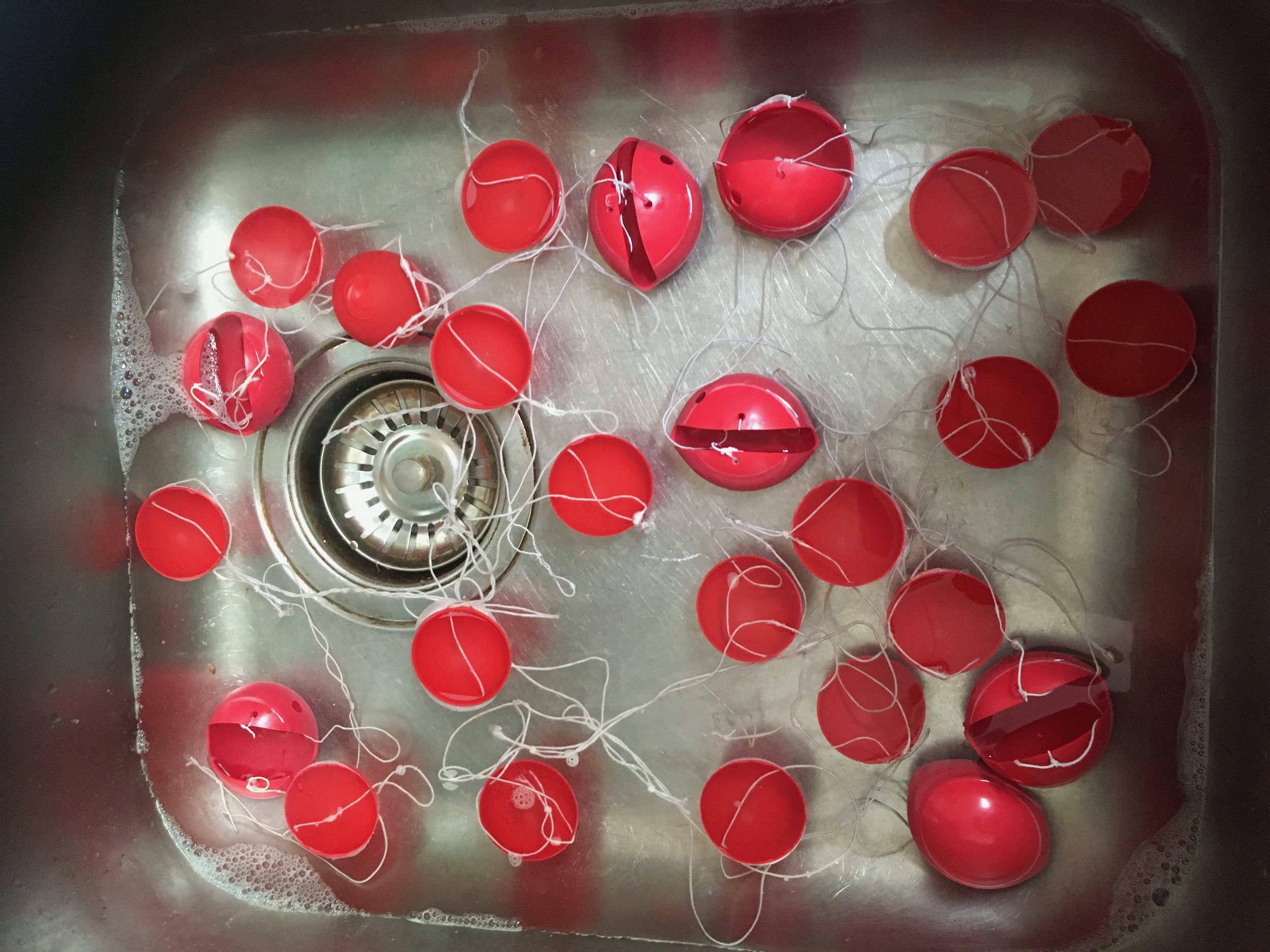Blog
Delve into our treasure trove of clowning tips, tricks and tales - ready to inspire you on your journey.
The clown who wouldn’t cry
A raw reflection on grief, laughter, and the fear of feeling too much- from a clown who usually keeps it light. After a sudden illness left Alicia temporarily deaf, she was forced to confront grief, vulnerability, and her inner clown through journaling.
From anxiety to freedom
Clowning isn’t just laughter – it’s liberation. Embracing play, failure, and absurdity transforms anxiety into creative freedom. Mistakes become magic, and fear gives way to fearless expression, one ridiculous step at a time.
The art and science of clowning
Clowning thrives on risk and connection within safe boundaries. This blog explores the “science” of welcoming failure without harm. With structure and support, clowns take bold risks and keep the laughter flowing.
Even coaches need their mirrors
Even the best coaches need reflection. This blog explores feedback, mentorship, and continuous learning in teaching clowning. Just as clowns grow through audience response, coaches evolve through peers, mentors, and students.
How to be a really smart idiot
Great clowning blends wisdom with stupidity. This blog explores being a “really smart idiot” – embracing curiosity, failure, and presence. It’s about revealing life’s truths through joyful, ridiculous play.
The power of collective joyful disruption
Laughter can be revolutionary. This blog explores how clowning disrupts norms, sparks connection, and fosters shared hilarity. Through play and absurdity, groups create space for creativity, empathy, and belonging.
Top 5 lessons I’ve learned as a therapeutic clown
Clowning in care settings is deep human connection, not just entertainment. This blog explores therapeutic clowning’s power to bring joy, dignity, and healing. In hospitals and beyond, clowns offer laughter as medicine.
Finding joy in motherhood
Motherhood is messy, unpredictable, and wonderfully absurd – just like clowning. This blog explores how play, presence, and embracing failure help navigate parenting chaos. Clowning brings humor, joy, and a fresh perspective to the journey.
Exploring the backstage
The clown's world begins in the liminal space backstage. This blog explores the hidden realm of transformation, where clowns shed their everyday selves. It’s a space of anticipation, vulnerability, and magic.
Reflecting on the Lecoq pedagogy
Jacques Lecoq revolutionized physical theatre and clowning through movement, play, and discovery. This blog explores his impact on modern clowning, from expressiveness to the art of surprise. His methods inspire clowns to embrace curiosity, presence, and poetic performance.
When your voice cracks (and why that's f*cking beautiful)
Embracing vocal imperfections reveals authentic connections, transforming fear into beauty through vulnerable, heartfelt singing.
Where to buy a red nose (that isn’t foam!)
The red nose is more than a prop – it’s a portal to vulnerability, play and authentic connection.
Why I quit my 9-5 to pursue clowning
Leaving the 9-5 for clowning is both terrifying and exhilarating. This blog explores the leap from stability to creative freedom, embracing play and uncertainty. Clowning proves joy, risk, and laughter can be a career.
A podcast interview with FBI radio
Alicia chats to FBI radio about her experience going to the famous theatre-making school, creating The Clown Institute, and how clowning has brought the gifts of self-discovery, authenticity and joy to her life.
Enclownter with Joy: a playful invitation to see the world differently
A playful, wordless encounter where you become joy, sharing a moment with a clown – reflecting, laughing and rediscovering wonder in an unexpected public space.
Exploring the possibilities of clowning in the virtual realm
The 2020 Virtual Clown workshop explored how clowns can authentically connect, laugh, and play with virtual audiences, bridging gaps created by isolation.
Clowning: the heart biz
Clowning is more than performance – it’s heart work. This blog explores its emotional depth, healing potential and the transformative power of laughter, featuring insights from the Clown & Melodrama workshop.
Clowning reading material, resources and links
The Clown Institute offers a curated list of resources for clowning enthusiasts, including books, films, TV shows, videos, schools and organisations.
Art of observation in clowning
A deep dive into the art of observation in clowning, exploring how noticing the smallest details can lead to poetic, absurd and unexpectedly profound moments.
We’re all usefool
A reflection on the beauty of foolishness, showing how embracing our inner fool nurtures empathy, resilience and joy.
Feeling inspired to jump into your joy?






















